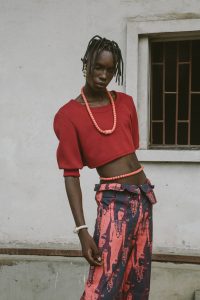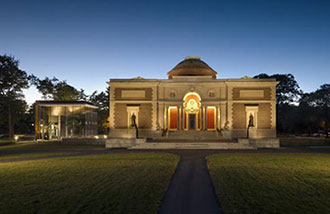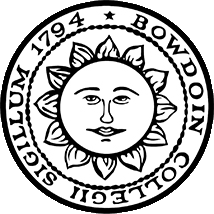
Daniel Obasi
Nigerian, b. 1996
Untitled, from the series Illegal project
2017
Photograph
Daniel Obasi’s collection
Daniel Obasi’s photographs play with androgyny, gender, and sexuality. This portrait depicts an androgynous figure wearing brightly colored jewelry and clothing in shades of red and pink. This photograph, along with the others in the Illegal project series, demonstrates an unconventional version of beauty that does not adhere to a gender binary or to only traditionally masculine or feminine features. A goal of this series is to show a different portrait of what “Nigerian” or “African” can look like, as well as to shed light on the discrimination and oppression faced by LGBTQ+ people in Nigeria today. While projects such as this one have no direct effect on laws and policies, they do important work in expanding the image of what kind of people and bodies exist in the world and in giving a platform to new visions of gender and sexuality.
Fobear, Katherine. “Nesting Bodies: Exploration of the body and embodiment in LGBT refugee oral history and participatory photography.” Social Alternatives 35, no. 3 (2016): 33-43.
This article explores the importance of including the body in narratives of LGBTQ+ refugees and the importance of photography and the creation of art in the process of claiming a sense of home and belonging.
Fobear, Katherine. “‘This painting is nice, but I wish it were more political.’ Exploring the challenges and dilemmas of community art with LGBT refugees.” Women’s Studies International Forum 62 (2017): 52-60. Accessed April 20, 2019. http://dx.doi.org/10.1016/j.wsif.2017.02.002.
This article examines the importance of art as a way of creating community, understanding, and empathy within and for marginalized groups, looking specifically at LGBTQ+ refugees.
Gulbinga, Yannis. “The ‘Illegal’ Project sheds lights on the LGBT community of Nigeria.” Last updated Sept. 27, 2017. https://www.featureshoot.com/2017/09/illegal-project-sheds-light-lgbt-community-nigeria/.
This article gives more information about the Illegal project and includes an interview with the artist.
Caroline Daigle ’20

